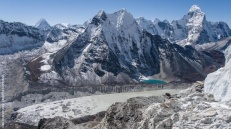Global Waters Stories – November 2019: Celebrate World Toilet Day
World Toilet Day 2019: These Countries are Making Sanitation Gains with USAID’s Help
As we celebrate the transformative public health impacts of improved sanitation this November 19, USAID takes you from Ethiopia to Indonesia in this photo essay to showcase how innovative thinking, government action, and private sector participation have helped generate some of the greatest recent sanitation success stories around the world. 
Strengthening Urban Indonesia’s Water and Sanitation Systems – USAID is working with Indonesia’s government and private sector to tackle the challenge of untreated waste through the regulation of sludge removal and provision of financing for septic tank construction.
Podcast: 2019 Global Analysis and Assessment of Sanitation and Drinking Water Report – Global Waters Radio presents the WHO’s Bruce Gordon and USAID’s Oliver Subasinghe discussing this report’s key takeaways and how its data help inform the Agency’s approach to WASH investments
Read the complete issue.









